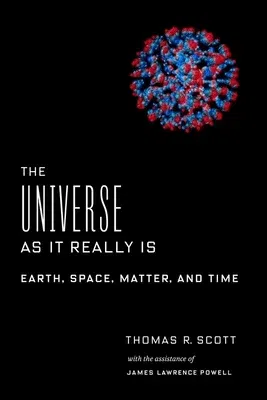The universe that science reveals to us can seem far outside the comfort
zone of the human mind. Subjects near and far open up dizzying vistas,
from the infinitesimal to the colossal. Humanity, the unlikely product
of uncountable coincidences on unimaginable scales, inhabits a
tumultuous universe that extends from our immediate environs to the most
distant galaxies and beyond. But when the mind balks at the vertiginous
complexity of the universe, science unveils the elegance amid the chaos.
In this book, Thomas R. Scott ventures into the known and the unknown to
explain our universe and the laws that govern it. The Universe as It
Really Is begins with physics and the building blocks of the
universe--time, gravity, light, and elementary particles--and
chemistry's ability to explain the interactions among them. Scott, with
the assistance of James Lawrence Powell, next tours the earth and
atmospheric sciences to explain the forces that shape our planet and
then takes off for the stars to describe our place in the cosmos. He
provides vivid introductions to our collective scientific inheritance,
narrating discoveries such as the shape of the atom and the nature of
the nucleus or how we use GPS to measure time and what that has to do
with relativity. A clear demonstration of the power of scientific
reasoning to bring the incomprehensible within our grasp, The Universe
as It Really Is gives an engrossing account of just how much we do
understand about the world around us.

